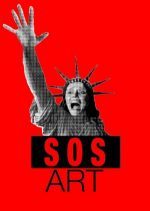As she was growing up, Rabbi Miriam Terlinchamp’s maternal grandfather would always tell her she needed to become a rabbi to continue the Jewish tradition in her family. She was born to a Jewish mother and to a Catholic Belgian father who converted to Judaism upon marriage. Her parents exposed her at home to the cultural and ritual aspects of Judaism but it was her grandfather who opened her eyes to its religiosity.
“As a baby already, my grandfather would take me every weekend to the synagogue to pray,” she says. “He would also tell me the stories of the different individuals whose pictures were hanging there, including those of my relatives who had passed away, in particular Miriam his wife.”
Born in Texas, Terlinchamp lived in Seattle, WA from the age of 8. Up to the 2nd grade she went to a Jewish school and afterwards to the International School, an alternative liberal arts public institution. But all along she attended 3 days a week a supplementary after school program receiving a Jewish education, learning Hebrew and getting familiarized with Jewish rituals. She also went to the synagogue every weekend.
At the age of 16 she had a marking experience witnessing the death from cancer of her best friend, also being part of the spiritual conversations that the latter had on her death bed with her rabbi. These were for Terlinchamp moments that strengthened her faith, pointing to what was important, and to the encompassing presence and love of God.
For college, she attended Scripps College in Claremont, CA, double majored in Philosophy of Religion and Studio art, and right after went to London to the London Slade School of art where she received additional training in painting.
“I led in London a free and quite enjoyable life,” she states, “but I found it empty, not focusing on ‘what things mean’. I knew I was avoiding the essential. So after 6 months I quit, returned home and changed my path. This is when my real quest towards the rabbinate began.”
Back in Seattle Terlinchamp worked as a graphic designer for a while, then at the Temple De Hirsch Sinai, as their assistant director of education. Around the same time her sister was in a very bad life-threatening car accident, hit by a negligent and very likely inebriated speeding police officer. The Washington law, then, did not require an alcohol test for officers. Angry by the situation and revolted by the pain and agony of her daughter, Terlinchamp’s mother sued the city and the state, won and was able to change the law in order to also have officers alcohol and drug-tested.
“This made me aware of the privilege we were carrying as white individuals, privilege that enabled us to fight and obtain justice,” says Terlinchamp. “If we were black or hispanic it would have been more difficult to change things.” “I realized then the power I had to effect the system; also that I needed to use it to make things better,” she adds.
This is also when she decided to apply to rabbinical school. Terlinchamp was accepted at HUC-JIR Reform Rabbinical School, in Los Angeles, spent her 1st year studying in Jerusalem, the 4 succeeding ones in LA, and in 2008 received her masters degree in Hebrew Letters.
Her years at the seminary were happy and productive. During them she served as chaplain at the Los Angeles Country Men’s jail working one on one with a group of LGBT inmates, at the Los Angeles Home for the Aging ministering for individuals over the age of 100, as a rabbinic fellow 3 weekends a month at Temple De Hirch Sinai in Seattle, WA, and as a national Kol Tzedek fellow for AJWS (American Jewish World Service).
In 2010 Terlinchamp was ordained a rabbi and came straight to Cincinnati, OH, to join Temple Sholom, selected by its congregation as their spiritual leader. Temple Shalom was then located in Amberley and owned a 30,000 square feet building on a 7 acres property; it was, however, deteriorating, its membership decreasing. Terlinchamp right away raised important questions, asking the congregation to reflect on what it meant to be a relevant faith institution and how the huge space they owned affected them both financially and spiritually. A listening campaign was thus started during which it became quickly obvious that, despite all the attachment and memories the place offered, the wisest solution was to sell the place, get rid of the “stuff”, straighten the finances and focus more on the essential faith.
Two years later all the goals that were then set were met, the membership was increasing with more youth and minorities, the previous dues model replaced by voluntary participation and contribution by members, and all motivated by faith and spirituality.
“Our actions and efforts became to manisfest God in us and in the world, to be all about love, and not be tied up by our possessions,” she says.
This also allowed Terlinchamp to be more vocal for social justice, to serve as the president of the Amos Project and through it to involve her community in various projects such as making the synagogue a solidarity sanctuary for immigrants, supporting the Preschool Promise, participating in various multifaith activities.
In a gesture of solidarity, for instance, members of her synagogue participated on several occasions in the Friday prayers at the Clifton Mosque, and their kids mingled and shared activities with Moslem kids at the same place.
They also march every year in the Pride parade, manifesting Jewish presence in support of the LGBTQ community; last year, they were joined by the Black Lives Matter movement. They have been active around the trial of University of Cincinnati police officer Ray Tensing who shot and killed African American motorist Samuel DuBose at a traffic stop in July 2015, asking for justice to be implemented and for police violence against black individulas to stop.They have also worked for immigrant rights.
Actually, following the ICE decision to deport Maribel Trujillo Diaz, an Ohio Mexican mother of four and Catholic lay leader who has been living in the US for 15 years, almost 500 individuals, including many from Temple Sholom, manifested and met in a little church in Carthage. Their reunion triggered the formation of JustLOVE, an association which organizes multifaith spiritual and music gatherings and which is directed by Terlinchamp. The group’s monthly meetings prepare for the journey, discussing themes of forgiveness, love, leadership, establishing larger conversations and building allies.
“JustLOVE is multi faith,” says Terlinchamp. “It brings people together; they share their experiences, connect by love, and work for justice. I would like to see it as an example of a harmonious proactive systemic change replicated in various cities across our country.”
Terlinchamp is also one of 11 invited citizens of different backgrounds and political philosophies to serve on the Cincinnati Enquirer’s Board of Contributors. In that role she writes a monthly editorial in the Cincinnati Enquirer and uses that platform to further her call and message for justice. She is active in Ohio Organizing Collaborative and serves on several boards and committees within the Cincinnati Jewish community.
“My goal in life is to do good in the world and work for justice,” says Terlinchamp, “and my Jewish faith enlightens me and shows me the way.”
And as a Rabbi, Terlinchamp uses her power and her privilege to expand her mission through all the members of her congregation and through the many allies that her leadership role allows her to foster and create in the Greater Cincinnati community.
“At Temple Sholom we welcome all people: seekers, interfaith families, and those in search of a spiritual home. We are defined by spirituality, social justice and love, and our mission is to extend these values everywhere and to everyone,” she adds.
Jewish texts that Rabbi Miriam Terlinchamp likes to quote: "It was for this reason that humans were first created as one person [Adam]: to teach you that anyone who destroys a life is considered by Scripture to have destroyed an entire world; and anyone who saves a life is as if he saved an entire world."-Mishnah Sanhedrin 4:5 "[If] we truly believe that one life is like an entire universe, then all you have to do is change one life, and you’ve begun to change the universe the only way we can, one life at a time, one day at a time, one act at a time. So when, out there, there is despair, let us bring hope. When out there there is hurt, let us heal. And when out there is division, let us show that we are enlarged and not diminished by our differences. Let us show the world what it is to stand together and respect one another. Therefore, I say this, never waste a crisis. Never stand still. Go out there, continue the Jewish journey, and be a blessing to the Jewish people, and to the world."-Rabbi Lord Jonathan Sacks




Leave a comment